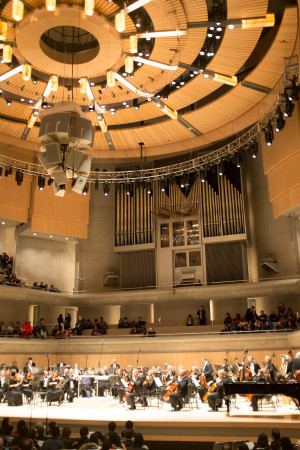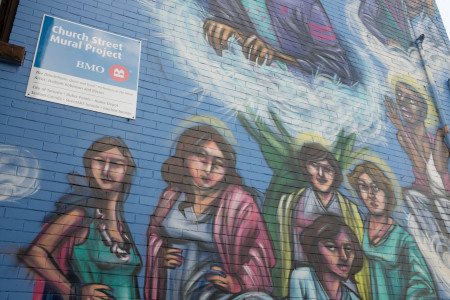Month: February 2015
CUPE 3902 tentative agreement
I am at Convocation Hall for a meeting of the members of CUPE3902 Unit 1 – the union for teaching assistants at the University of Toronto.
We are discussing a tentative agreement which the bargaining team reached with the administration late last night.
To me, the proposed deal looks deeply inadequate. They are proposing wage increases of 1%, 1%, 1.25%, and 1.25% over the next four years.
For starters, the Bank of Canada calculator shows that the real value of the funding package has fallen by 9.89% since it was set in 2008. In addition, the proposed wage increases don’t even keep up with inflation for the years in which they happen.
We will see what happens in this meeting, but I hope my fellow union members won’t accept something so inadequate. The objective here is to get beyond poverty wages for TAs – not to reduce them further.
Toronto Symphony Orchestra 2/2
2:55am bargaining position
Fresh from the CUPE 3902 mailserver:
Friends,
A few minutes ago, our Bargaining Team voted unanimously to recommend a tentative agreement. All seven Bargaining Team members believe that this is an agreement we can proud of, with many significant gains for our members.
Of course, members will have the final say on this agreement. As per previous notice, we will meet later today (Friday, Feb. 27) at 3:30 p.m. in Convocation Hall. Sign-in will begin at 2:30. We believe there will be a large turn-out, and we ask members to come as early as possible.
To alleviate the need for the Union to print tens of thousands of pages, we ask all members who are able to bring tablets or other electronic devices so that they can view the tentative agreement electronically.
The Employer has agreed to provide work release to any members who need to miss work to attend the meeting. There will be no loss of pay. Please notify your supervisor or department.
We look forward to discussing this agreement and to debate over the agreement later today.
In Solidarity,
–Ryan
CUPE 3902
Photos from today’s CUPE rally
The strike deadline is in five minutes.
Toronto Symphony Orchestra 1/2
Roy Thomson Hall 2/2
Roy Thomson Hall 1/2
Update on Ebola
“Body-disposal teams are credited with checking Ebola in Liberia. But such teams are often attacked in Guinea. Resistance is reported in over a third of prefectures.
…
At times last year it looked as if Ebola was under control in Guinea, the largest of the affected countries. But health workers have trouble finding the sick. Poor publicity campaigns make it less likely that they come forward. Many believe that foreigners are infecting them. The WHO is now hiring anthropologists to help co-opt local leaders.
…
Getting to zero infections will be harder the longer it takes. Heavy rains will soon make it difficult to reach remote areas. Health officials also fear complacency. America is pulling its troops out of Liberia. Others may follow. WHO officials complain of a dwindling budget. The jungles of Guinea hid the first case; as long as they hide the last ones, the outbreak is not over.






